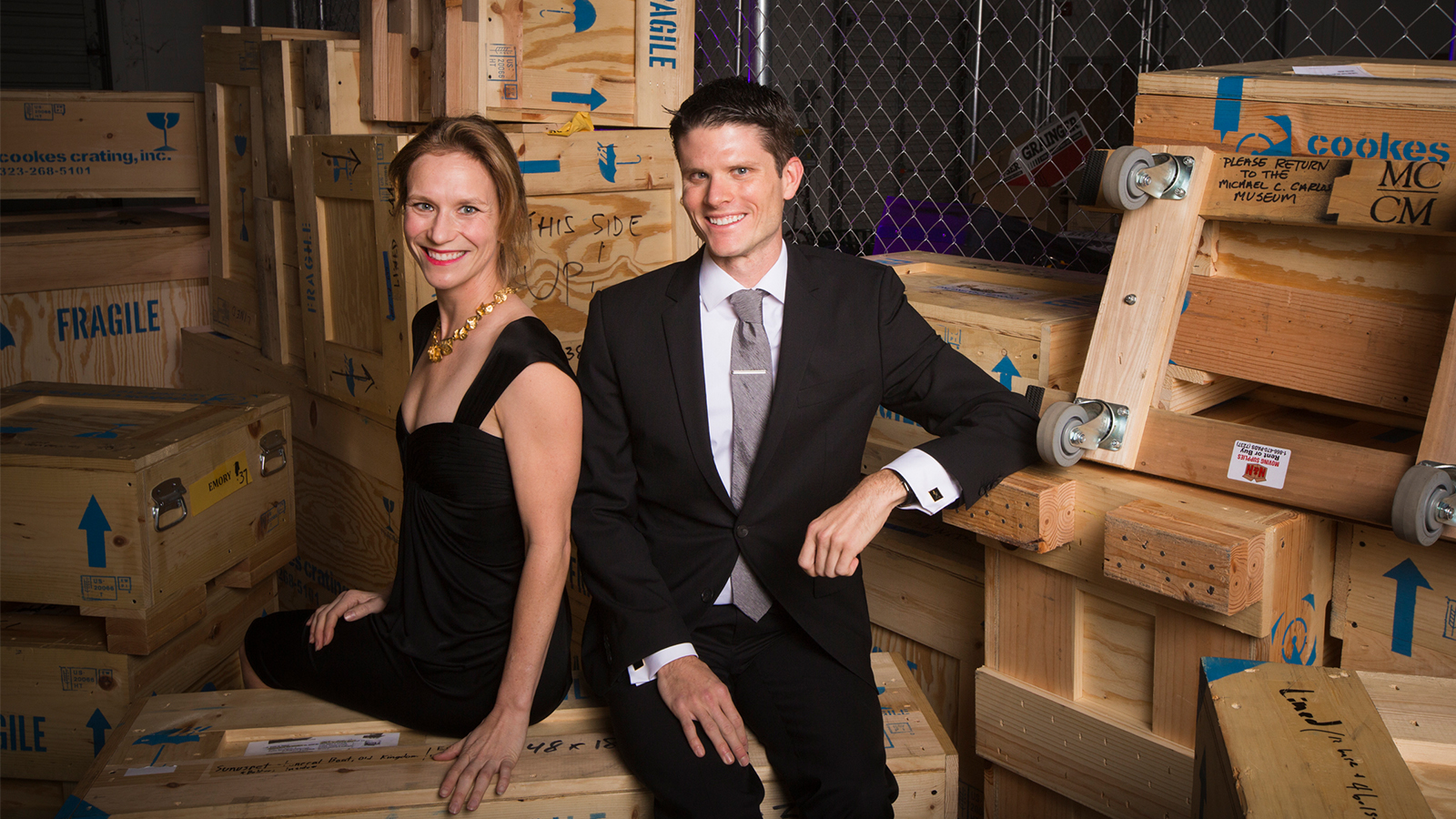MCCM: How did you become involved with the museum?
LG: I was essentially raised in the Carlos Museum. My father was a political science professor at the College (he retired in 2018), and his office was in the building next door to the old museum when we moved to Atlanta in 1983.
I was often sent off to play in the museum, and I became fascinated with ancient Egypt. After a children’s workshop where we mummified another kid using toilet paper and made canopic jars from Styrofoam cups, I even built my own “Egyptian temple” in my garage where I practiced mummifying my Barbies. I went to Camp Carlos and BC Fest, and I spent countless hours exploring the galleries.
When I moved back to Atlanta in 2012, I was excited to get involved with the museum again.
JKE: My attachment to the Carlos Museum began in medical school and residency. I would wander over to the galleries while on long hospital shifts, during downtime. Amid the intensity of medical training, the exhibitions provided serenity and perspective, putting daily life into a wider context.
MCCM: Why do you support the Carlos Museum?
LG: Someone once said that if you have no memories, you have no self. I think that’s true for cultures as well as for people. The Carlos provides a wonderful opportunity to explore the sweep of the history of the human race from Africa to the Middle East to South America.
I’m particularly invested in making that opportunity available to people who may not otherwise have the chance to visit the museum, which is why I’ve been involved in raising money for the Bus Fund, which provides transportation stipends for Title I schools.
JKE: The story of humanity is almost unfathomable. A person can study history all their life and barely scrape the full context of everything that our species has experienced. Showing glimpses of that story to those in the present, whenever possible, is vital. The awe of the human struggle grounds us, reminding us of what is important. For Atlanta, the Carlos Museum provides those glimpses.
MCCM: What is your favorite memory of the Carlos Museum?
LG: There are so many—it’s hard to pick! I’ve mentioned some of my favorite childhood memories, but I also have to call out exhibitions that really affected me. I still remember the first time I saw the Moche pottery collection after it was acquired—it was aesthetically different than anything I’d ever seen, and I was so struck by it.
There was also an amazing Gordon Parks exhibition when I was in college, which combined his photography and his music. That was another exhibition that showed me a new way of seeing, and I still think about it often.
JKE: I adored the Tibetan shrine exhibition, particularly the room with all four walls covered in a photographic 360-degree mountain-scape panorama. It was both unconventional and perfect for the Carlos Museum. Stepping into that room, you exited your daily routine and emerged thousands of miles away. It brought back many great trekking memories, and put the shrine exhibition into context.
MCCM: What most excites you about the museum right now?
LG: I’m excited about the work we’re doing to broaden access to the Carlos through the Bus Fund, offering free days, and making passes available for checkout at public libraries. The centennial and the new gift are great opportunities to continue those efforts to bring more people through our doors and make our human legacy available to more people.
JKE: Momentum! The staff are diverse and forward thinking, full of creative new ideas. The newly acquired Senusret Collection is a boon for the museum's already strong ancient Egyptian galleries. This prestigious acquisition is a validation of the museum's efforts in conservation. And what perfect timing, as the Carlos's 100-year anniversary reminds us of the museum's own story.
Show your support for the Carlos Museum by joining Lauren and Kirk at Veneralia100 on Saturday, May 18.





